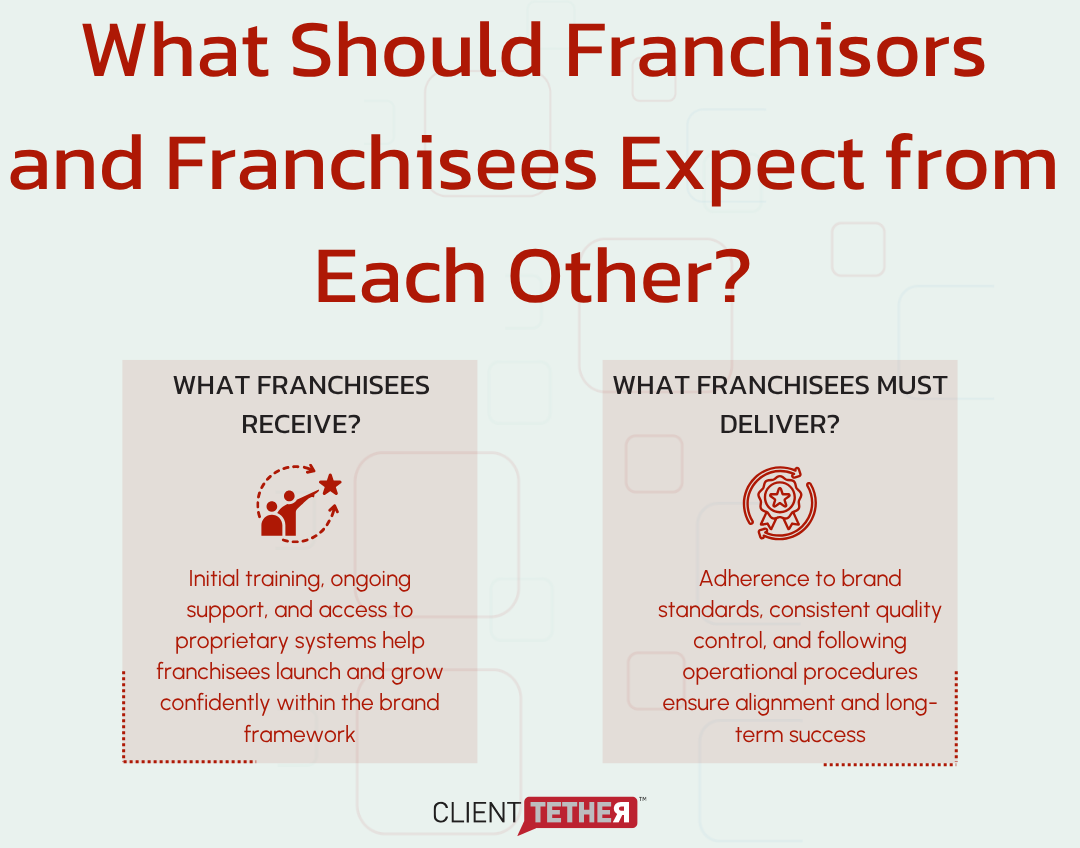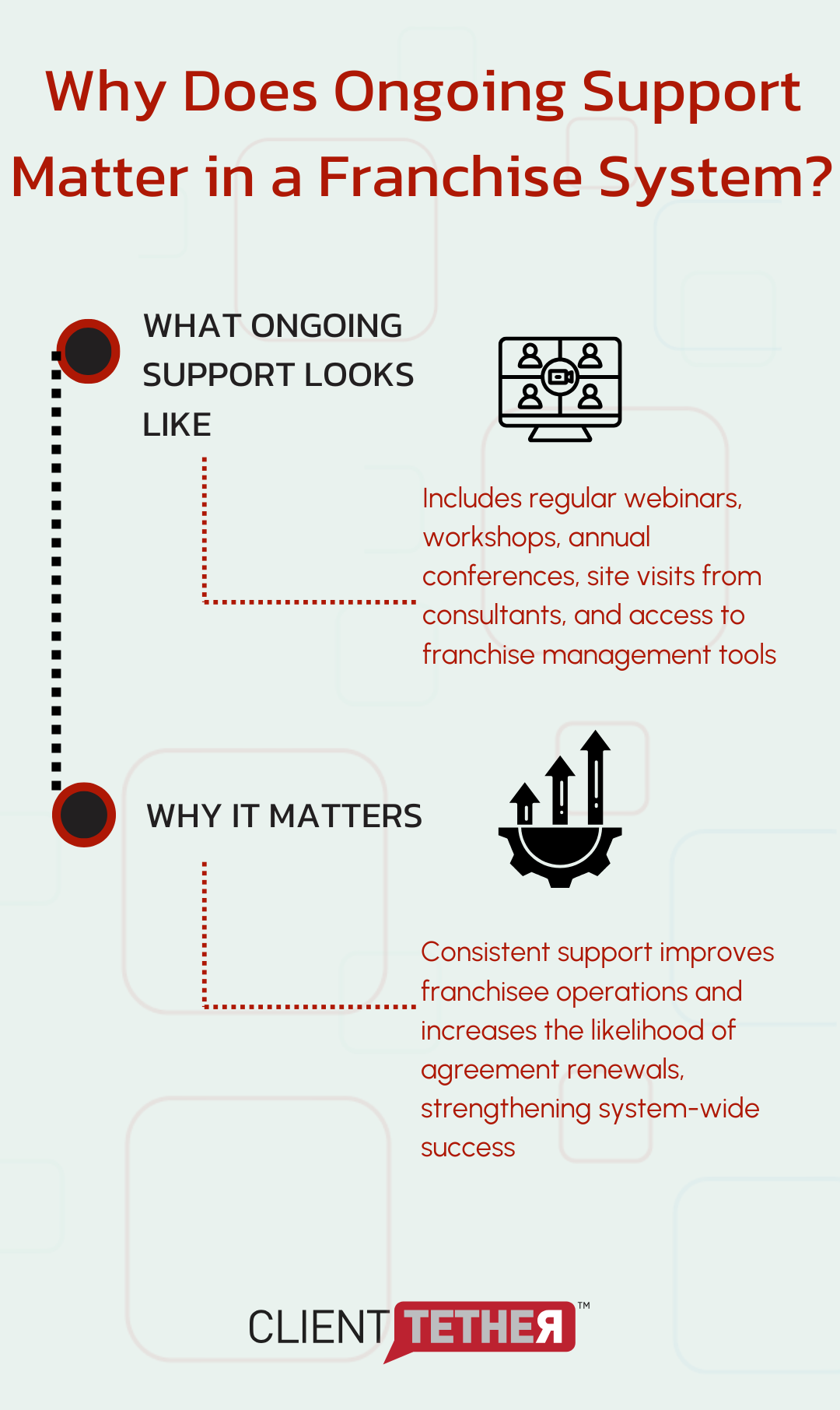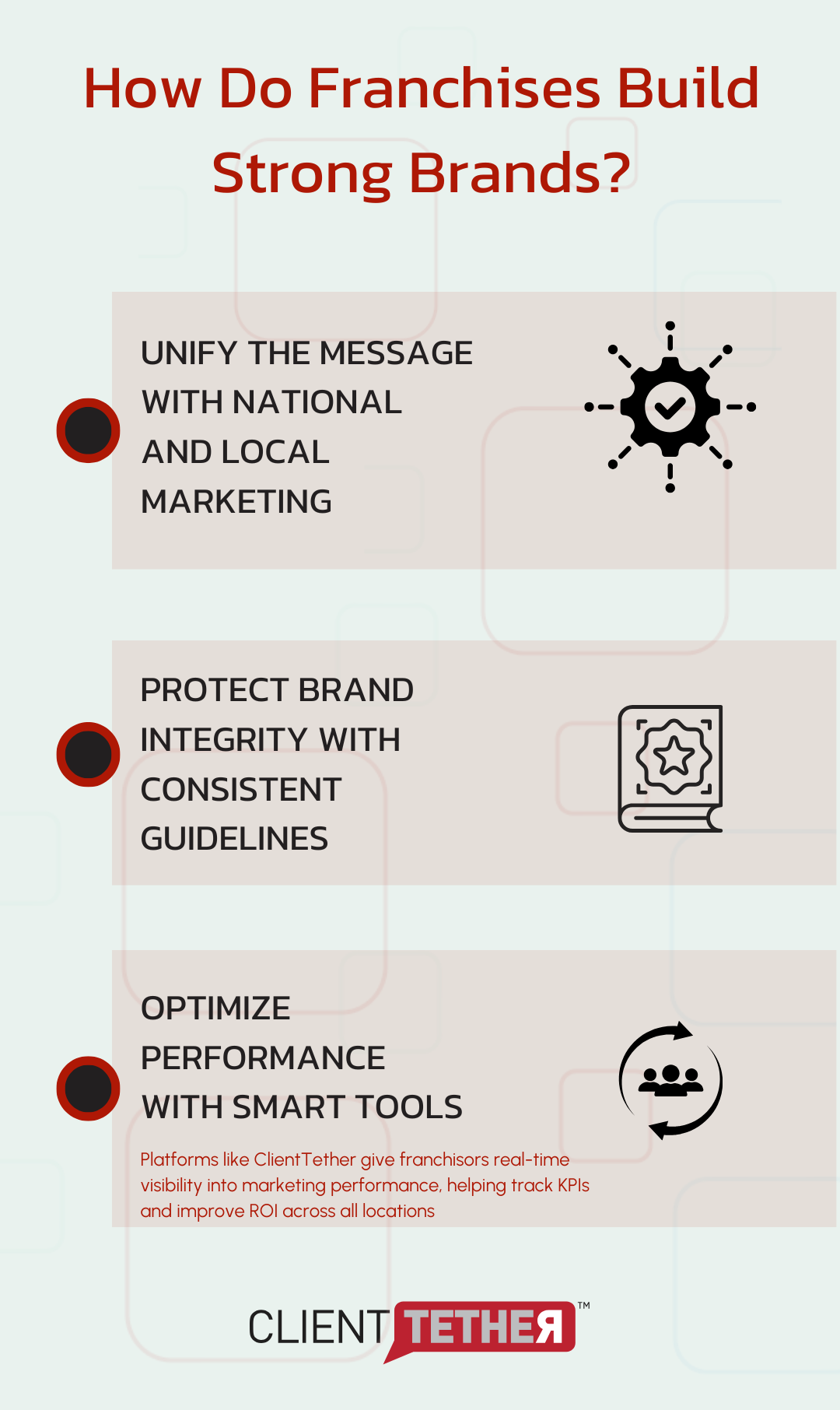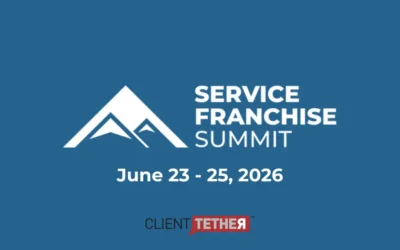One of our early-stage franchisors told us their entire franchise system began as a scribbled list on a single piece of paper.
It had a few bullet points about branding, some pricing, and a quick reminder to “send training materials later.” They had the drive and the vision, but no structure.
18 months later, that same brand was operating in five states with a full franchise operations manual, automated lead follow-up, and a marketing strategy driven by data.
In this post, we’ll walk through the key components of a strong franchise system. From legal agreements to operational support and marketing strategies, we’ll show you how to build the structure you need to succeed.
What’s in a Franchise Agreement?
The Foundation of Franchise Relationships
A franchise agreement forms the bedrock of any franchise relationship.
This legally binding contract outlines the rights, responsibilities, and expectations of both the franchisor and franchisee. A well-crafted agreement sets the stage for a thriving franchise system.
Key Components of Franchise Agreements
Franchise agreements cover several critical areas:
- Use of trademarks and intellectual property
- Territory rights
- Operational standards
- Financial obligations (initial fees, ongoing royalties, marketing contributions)
The International Franchise Association forecasts that franchises will grow an additional 2.4% in 2025, a faster rate than the 1.9% projected for the broader economy.
Rights and Obligations
The agreement should clearly define what franchisees can expect from the franchisor. This often includes:
- Initial franchise training
- Ongoing support
- Access to proprietary systems
In return, franchisees must:
- Adhere to brand standards
- Maintain quality control
- Follow prescribed operational procedures
Research consistently shows that franchises with clearly defined and well-enforced standards tend to outperform those with vague or inconsistent systems. A strong structure leads to stronger results.
Time Frames and Renewal Processes
Most franchise agreements have a set term, typically ranging from 5 to 20 years. The renewal process is a critical aspect that should be spelled out.
Franchisees should pay close attention to renewal conditions, which may include:
- Fees
- Required upgrades
- Performance benchmarks
Transparent renewal processes are widely recognized as a key factor in enhancing franchisee satisfaction, fostering trust, and strengthening the franchisor-franchisee relationship.
Protecting Your Investment
For franchisees, it’s important to understand termination clauses and any post-termination restrictions.
These might include non-compete agreements or limitations on using similar business models. Franchisors should ensure these clauses are enforceable in their jurisdictions to protect their brand and system.
Franchise agreements can be complex, but they’re non-negotiable for creating a stable, profitable franchise system.
Zors and Zees alike should invest some time in understanding and negotiating a fair agreement for long-term success. (Franchise Management tools like ClientTether can help manage many aspects of the franchise relationship, from lead conversion to customer retention, making it easier to meet the obligations outlined in your agreement.)
Now that we’ve covered the foundation, let’s take a closer look at how franchisors support their franchisees through training and day-to-day operations.
How Can Franchisors Support Their Franchisees
Comprehensive Initial Training
Franchisors offer intensive initial training programs that last from a few days to several weeks. These programs cover day-to-day operations, financial management, and customer service.
McDonald’s University, for example, provides new franchisees with 12-18 months of training in a restaurant, including self-directed, part-time training for 20 hours per week, seminars, conferences, and one-on-one training sessions.
The International Franchise Association reports a 15% higher first-year revenue for franchises with structured initial training programs compared to those without.
Continuous Education and Support
Successful franchise systems provide ongoing education and support to help franchisees adapt to changing market conditions and improve their operations. This support includes:
- Regular webinars and workshops
- Annual conferences
- On-site visits from franchise consultants
- Access to proprietary software and tools
Research indicates that franchisees who receive consistent and ongoing support from their franchisors are more inclined to renew their agreements at the end of the term, underscoring the importance of sustained franchisor-franchisee engagement.
Quality Control Measures
Maintaining consistent quality across all locations is essential for brand reputation.
Franchisors implement various measures to ensure adherence to standards:
- Mystery shopper programs
- Regular audits and inspections
- Customer feedback systems
- Performance benchmarking against other franchisees
The Franchise Business Review reports a 20% higher customer satisfaction rate for franchises with strict quality control measures.
Franchisors often use technology to streamline these processes. A Franchise CRM allows franchisors to monitor franchisee performance in real-time, enabling quick interventions when needed.
Tailored Support for Franchisees
Progressive franchisors customize their support based on franchisee experience and performance. New franchisees might receive more hands-on guidance, while seasoned operators might benefit from advanced business strategy sessions.
A survey by Franchise Business Review found a 35% increase in franchisee satisfaction scores for franchises offering personalized support.
Operational support and training form the backbone of successful franchise systems. The next chapter will explore how franchisors manage marketing and brand consistency across their network.
How Do Franchises Build Strong Brands?
National Marketing Campaigns
Franchise marketing campaigns are a powerful way to build brand awareness and attract customers across the entire franchise network.
These efforts often include television, radio, and digital advertising to reach a wide audience and maintain a consistent brand message.
Franchisors usually take the lead in developing and managing these campaigns to protect brand identity and ensure alignment. Franchisees support these efforts by contributing a percentage of their gross sales to a national advertising fund.
According to the International Franchise Association, this contribution typically ranges from 1 to 4 percent.
Local Marketing Initiatives
While national campaigns build overall brand awareness, local marketing initiatives help individual franchisees connect with their specific communities: sponsoring local events, partnering with nearby businesses, or tailoring promotions to regional preferences.
Solid franchise brands often provide franchisees with customizable marketing materials and guidelines to maintain brand consistency while allowing for local flexibility.
Maintaining Brand Consistency
Consistent branding across all franchise locations plays a key role in building customer trust and recognition.
To support this, franchisors often create detailed brand guidelines that cover everything from logo usage and store layout to signage and employee uniforms.
To help franchisees stay aligned, many franchisors conduct regular reviews of marketing materials and in-store branding to ensure compliance with these standards.
Cooperative Advertising Funds
Many franchise systems utilize cooperative advertising funds to pool resources for more impactful marketing efforts.
Those allow franchisees to benefit from economies of scale in advertising purchases and production costs.
Cooperative advertising funds require careful management. Best practices include setting up a separate business entity to track all incoming and outgoing activity and maintaining a separate bank account for ad funds contributed by franchisees.
Digital Marketing Strategies
Most customers begin their search online, which means visibility, reputation, and messaging must be consistent and well-managed at every location.
Franchises must regularly assess the effectiveness of their marketing efforts to ensure the best return on investment, which might involve tracking key performance indicators (KPIs) such as customer acquisition cost, conversion rates, and return on ad spend.
ClientTether can help franchises track these metrics across multiple locations, providing valuable insights for optimizing marketing strategies.
Final word: How to Turn Structure Into Growth
Building a strong franchise system takes ambition, sure. But it also takes structure, communication, and the right support at every stage.
When legal agreements are solid, training is practical, and marketing is aligned, everything starts to work together. That’s when brands grow with confidence.
Franchisors and franchisees both play a part in strengthening a franchise system: Franchisors bring the consistency and tools. Franchisees bring the local insight and adaptability.
Most successful systems find ways to support both, without losing momentum.
And while operations will always require people and processes, technology is changing how those efforts scale. ClientTether has been giving growing brands an edge, from real-time lead engagement to performance tracking that actually drives decisions.
Franchise systems that win are the ones that stay aligned, stay flexible, and never stop evolving.







